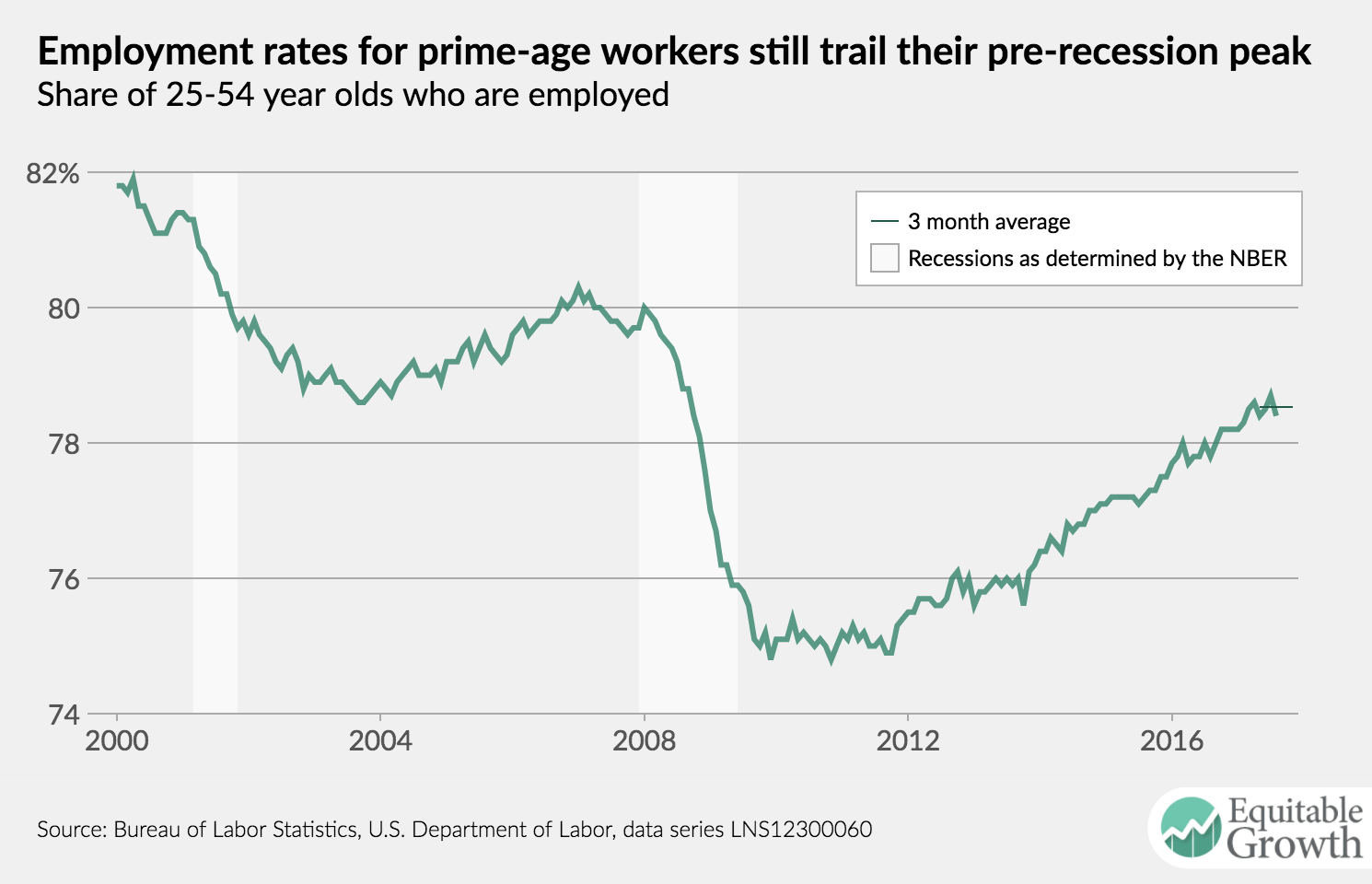Weekend reading: “One inequality measure to rule them all?” edition
This is a weekly post we publish on Fridays with links to articles that touch on economic inequality and growth. The first section is a round-up of what Equitable Growth published this week and the second is the work we’re highlighting from elsewhere. We won’t be the first to share these articles, but we hope by taking a look back at the whole week, we can put them in context.
Equitable Growth round-up
There is no single best measure of inequality, argues Austin Clemens. Income, wealth and consumption all need to be considered together to get a full picture of inequality.
As policymakers turn their attention to a potential reform of the U.S. tax code, there are renewed calls for reducing the mortgage interest tax deduction. Nisha Chikhale writes about new research on the impact of making such a deduction less generous.
With significantly more debt than before the Great Recession, should the U.S. government be concerned about fiscal stimulus making the debt unsustainable? Not really, according to new research.
The U.S. Bureau of Labor Statistics released new data on the labor market earlier this morning. Check out five key graphs from the report chosen by Equitable Growth staff.
Links from around the web
How much will reducing the corporate income tax boost wages? Paul Krugman points out that if lots of corporate profits are derived from market power, a tax cut would only let capital owners get more profits. [nyt]
Speaking of the rise of market power, Noah Smith lays out the evidence for the “market power” story. [noahpinion]
Believe it or not, Millennials are not the job-hopping, constant-quitters that some media narratives would have you believe. Danielle Paquette reviews a new report that shows Baby Boomers hopped jobs quite a bit when they were young. [wapo]
In the wake of the Great Recession, governments tried out a number of new policies. But perhaps they didn’t go far enough. Martin Sandbu suggests three radical policies to consider. [ft]
A universal basic income would clearly have an impact on the distribution of income, but what would it do to economic growth? Dylan Matthews writes about new research trying to figure out the macroeconomic impact of a UBI. [vox]
Friday figure

Figure is from “Equitable Growth’s Jobs Day Graphs: August 2017 Report Edition.”

